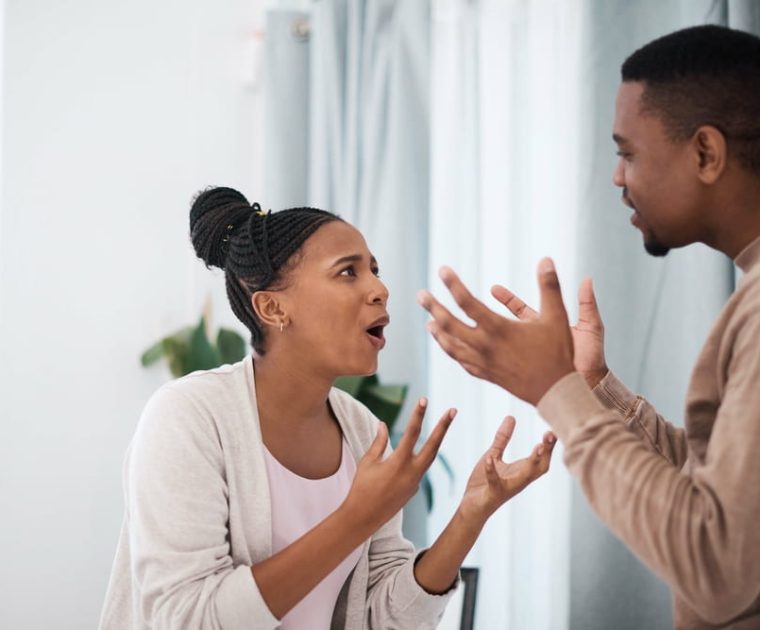Break Up Counseling

By Estes Therapy
Are you going through a break up? The end of a relationship signals a period of change, and it can often be accompanied by pain or confusion. Loneliness, heartache, and guilt are all emotions you may experience following a break up.
Break ups are never easy no matter how many you have been through, and no two break ups are the same. The end of a relationship can leave you reeling, wondering what you could have done differently, whether you are flawed, and feeling hopeless about what the future may hold. These are all completely normal emotions and they do not need to be permanent. Break up counseling can help you identify the root of your hurt and move you toward a place of acceptance and healing.
Why is this so devastating?
A break up is signaled by the termination of a commitment that two people had to one another. This can be everything from casual Tinder dating to sharing a home, pets, and children together. Disentangling your life from your partner’s can cause stress, anxiety, and depression. This is due to not only the emotional turmoil but also the effort required to separate possessions and/or work out custody agreements. The act of breaking up can feel like a shattering of the illusion you had about your life and the future you had dreamt of for yourself. It is completely natural to experience grief in the wake of your breakup, and you do not have to go through it alone.
What Happened?
This is a question you might ask yourself immediately following the end of your relationship. A break up may occur for several reasons, each bringing its own level of confusion and trauma. In certain cases, one person may decide they want to end the relationship seemingly out of the blue, leaving their partner with feelings of abandonment and even betrayal. In other cases, both partners might agree that the relationship just isn’t working and collectively decide to move on. No matter how the break up occurs, each scenario brings with it a level of heartache and upset that can feel debilitating. Working with a therapist can bring clarity to the ‘why’ behind the break up and set you on the path towards healing and closure.
How do I know if I need therapy for a break up?
There is no one metric to determine whether or not you need therapy following a break up. Break ups can happen for many reasons, and your need for therapy can be as simple as ‘I don’t want to feel lousy anymore.’ We experience loss in different ways depending on the length and depth of the relationship, and there is truly no break up too small to necessitate discussion with a professional. Having said that, here are some signs that might indicate it is time to contact a therapist:
1. Withdrawing from friends and family
While it is natural to want to grieve in solitude, your friends and family can provide a network of support that is critical for starting your healing journey. If you are finding that your depression is so severe that you are unable to reach out to your loved ones, it may be time to get in contact with a professional.
2. You are unable to function normally
If you are having prolonged difficulty with eating, sleeping, and/or getting to work, you may want to evaluate how your coping is impacting your health. Ending a relationship, especially one that has spanned years, can spark stress, anxiety, and depression. Working with a therapist will help ensure that you incorporate healthy coping mechanisms into your life and keep you from falling in a mental downward spiral.
3. You obsessively fixate on the relationship
A late-night phone call to your ex is bound to happen. If this becomes a habit however, or you find yourself incessantly sending text messages or DMs with little to no reply, you may want to evaluate why the relationship holds so much significance for you. It’s natural to hyper-romanticize a person we were close to, especially after we’ve been rejected by them. A therapist can help you get to the deeper root of your attachment to the relationship. This will not only help you to move on from your ex, but also to approach your next relationship with more understanding.
How can break up counseling help?
When you have poured so much of your personal time and emotion into one person, and have spent months or even years tending to what felt like a special relationship, it can feel devastating to watch it dissolve before your eyes. The aftermath of the break up may stir up a lot of feelings: is there something wrong with me? What do I do now? Will I ever find another partner? What does my life even look like without this person? What will I tell my friends and family? Feelings of shame, loss, inadequacy, and confusion are all normal. The good news is that discussing your break up with a professional can bring clarity – and closure – to your situation. Here are some topics you might discuss with a therapist to inspire self-reflection and begin moving into the next phase of healing:
1. Am I to blame for the failure of my relationship?
It is important to remember that two people make up a partnership and so one person can never shoulder 100% of the blame. This can be easy to forget especially when the break up was one-sided or came as a complete surprise. A therapist will help guide you in evaluating the separate pieces of you and your ex’s backgrounds that collectively led to your break up. This can bring a great sense of relief knowing that you were not solely responsible for the end of your relationship.
2. How do I handle conflict?
When you are feeling hurt or abandoned, it can feel easy to blame, criticize, withdraw into yourself, or go on the defensive. Discussing your conflict style with a therapist may provide insight into how you can improve the way you approach disagreements and how you react in a given situation, paving the way for a healthier and more successful relationship in the future.
3. Is my difficulty with moving on linked to something that happened in my past?
While all break ups are difficult, some just really seem to linger more than others. Perhaps you’ve tried all the classic post break up tricks, but now it’s been months and you are still feeling completely floored from the loss. A therapist will help identify how past relationships might be influencing your current emotions and identify patterns that may have led you to the current place you are in. Acknowledging past traumas can help to build resilience in yourself and your partnerships. You cannot show up and be a good partner for another person if you are not showing up for yourself.
4. Why did this happen?
A therapist acts as a neutral party to the breakup. You don’t need to be trapped in your own circular thoughts around why the break up happened. Using a therapist as a sounding board is a great way to express why you’re feeling hurt or cast off. Your therapist comes to the conversation from a place of impartiality, and in doing so has a more level-headed perspective of the relationship. This can help to separate your emotions from actions and bring clarity as to why things went down the way they did.
Hope can be on the horizon, even if you can’t see it right now. Break up counseling is here to help you move past the painful emotions that come along with the end of a relationship.
Whether you end a casual fling, a dating relationship, engagement, or a marriage — break ups are hard. If you are feeling lost, alone, or having a tough time dealing with all of the change that is taking place at once, it might be overwhelming. You are not alone.
Going to counseling for a break up helps you get back on your own two feet and work through the emotions of helplessness, confusion, or even betrayal. We are here to help you find happiness in your new life.





Leave a Reply